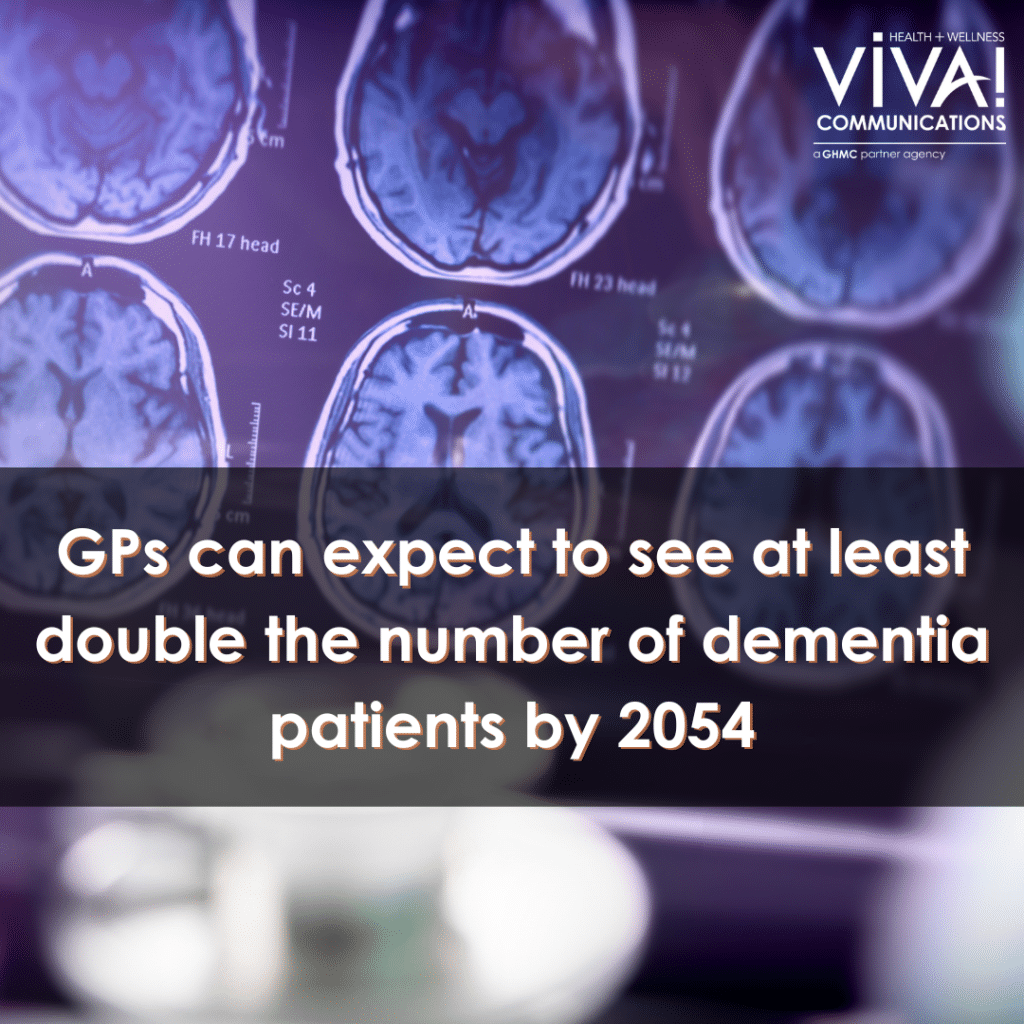GPs can expect to see at least double the number of dementia patients by 2054

Today we have chosen to reflect on a topic very close to our heart at VIVA! – a therapeutic area which we have specialised in for the past eight years – dementia.
Dementia refers to a collection of symptoms that compromise memory, thinking and social and daily activities of life. The disease is progressive, & can afflict anyone, although older people are at heightened risk. Importantly, the disease is not a normal part of ageing.
People living with hypertension, diabetes, those who are overweight or obese, smoke, consume too much alcohol, are socially isolated & depressed, are at high risk. Genes, age, health & lifestyle all play a role in dementia.
That’s why an article recently published by the Medical Republic based on National Centre for Monitoring Dementia (NCMD) modelling for the Australian Institute of Health & Welfare (AIHW), pricked up our ears. The article explained how the number of Australians diagnosed with dementia is set to increase from 421,000 in 2024, to 812,500 by 2054.
The report further outlined concerns regarding the prevalence & rise in cases of younger onset dementia (diagnosed before the age of 65 years). An estimated 29,000 cases of younger onset dementia will be diagnosed in 2024, & this figure is set to rise by 41 per cent, to almost 41,000 by 2054.
Medical Adviser of Dementia Australia, Associate Professor Michael Woodward, Melbourne, said the rise in dementia cases calls for a critical need for GPs to undergo more training & support to cope with the impending ‘tsunami’ of cases.
“What it basically means is that every GP is going to be having twice as many cases with dementia & Alzheimer’s. That’s assuming the number of GPs remains constant at the moment,” said A/Prof Woodward.
However, A/Prof Woodward notes that while these numbers are concerning, the increase in rates of younger onset dementia is largely, in part, due, to a wider range, & better accuracy in diagnosis technologies & procedures.
“In the past, people in their 40s, 50s & even early 60s who had Alzheimer’s were initially thought to be depressed, or to have a spectrum disorder, or ADHD, or maybe substance abuse, & it wasn’t considered that they could have Alzheimer’s, so we’re better at picking it up.
“We’ve got better diagnostics tests, like PET scans & CSF, & soon blood tests, so we’re much more confident in making the diagnosis,” A/Prof Wooward said.
The rising numbers underscore the importance of, & the need for, critical plans & strategies to ensure the Australian community is well prepared to cater for those living with Alzheimer’s & other forms of dementia.
However, the burden does not rest exclusively on the shoulders of GPs. The sustained rise in dementia patients places a growing burden on support services, not only for those living with dementia, but also for the more than 1.6 million people estimated to be involved in caring for them.
Society needs to be collectively prepared, to keep pace with the rising number of dementia patients, including, but not limited to, carers, nurse practitioners & other healthcare professionals.
Essentially, A/Prof Woodward notes, “we need to train the whole society to destigmatise dementia.”
Dementia Australia’s CEO, Maree McCabe, Melbourne, stresses dementia is the most significant health & social challenge facing Australia & the world.
“Provisional data is showing that dementia will likely soon be the leading cause of death of all Australians,” said Ms McCabe.
While the growth of dementia cases poses a challenge to our healthcare systems & the community at large, the data provides valuable insights to help inform, plan & fund services & programs Australia-wide to meet current & future needs.
If you, or a loved one is living with dementia, head to: https://www.dementia.org.au/support for online resources, a 24-hour helpline & counselling tools.
